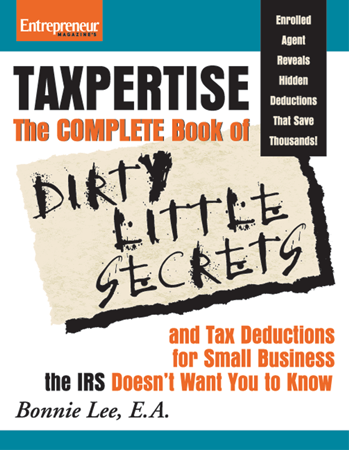If this is the year you become a landlord, you will want to pay attention to the tax rules governing this investment. If you already own income property, you may want to review these IRS regulations to ensure that you are in compliance.
Unless you are in a partnership, your rental income and expenses are listed on your individual tax return on Schedule E.
The profit or loss from the activity is included in income and taxed at your ordinary income tax rate. It sounds pretty straightforward, doesn’t it? Not so fast. Watch and see just how tricky it can get.
First of all, what is rental income? If a prospective tenant pays first, last, and a security deposit when moving into the property, not all of that is included in current year taxable income. Or is it? Here’s how it breaks down:
- First and last month’s rent are included in the current year income even if the last month’s rent will be applied in a future year.
- Advance rent – e.g. payment of next year’s today – is all included in income for the current year, regardless of what year the payments are for.
- Non refundable deposits are included in current year rent, even if a fee, for example, a nonrefundable cleaning fee, won’t be used until the tenant moves out in a future year.
- Security deposits need not be claimed as income if you intend to return the deposit to the tenant at the end of the lease term.
- Barter is income. If, for example, as part of the rent, your tenant agrees to maintain the gardens and pool, you must show the value of these services as rental income. By the same token, you may also deduct the same amount as a rental expense. I know it’s a push, but the IRS wants us to sharpen our pencils and do extra paperwork.
- Expenses paid by your tenant. See barter income above. Say you’re jet setting through Europe and the pipes spring a leak. Your tenant pays the plumber then deducts it from his rent. You must include the full rent in income and write off the plumbing expense against it. And again, it’s a push.
- Lease cancellation. If your tenant pays you to cancel the lease, include the payment as rental income.
- Option payments. If your tenant signs a lease with an option to buy, the option payments are generally rental income. But once the tenant exercises the right to buy the property, all payments received after the sale are considered part of the selling price.
- Here’s a little tax break for you: if you rent out part of your personal residence for fewer than 15 days, you need not include the rent you receive in your income.
- If you are renting space in your personal residence (including a vacation home) for more than 15 days, you must declare the income. But you should consult with your tax pro to determine how to properly allocate your rental expenses against the income you receive.
- If the property is unoccupied but available for rent, it is still considered a rental activity and as such, you may take all rental expenses against zero income. Be ready to prove it was available for rent. That includes keeping copies of ads you’ve run, etc.
Also make sure you keep all lease/rental agreements and tenant applications. If you are audited, the IRS will review these documents as part of the verification that this is indeed a rental property. Also keep all cancelled checks and credit card receipts for all rental expenses deducted on your tax return.




